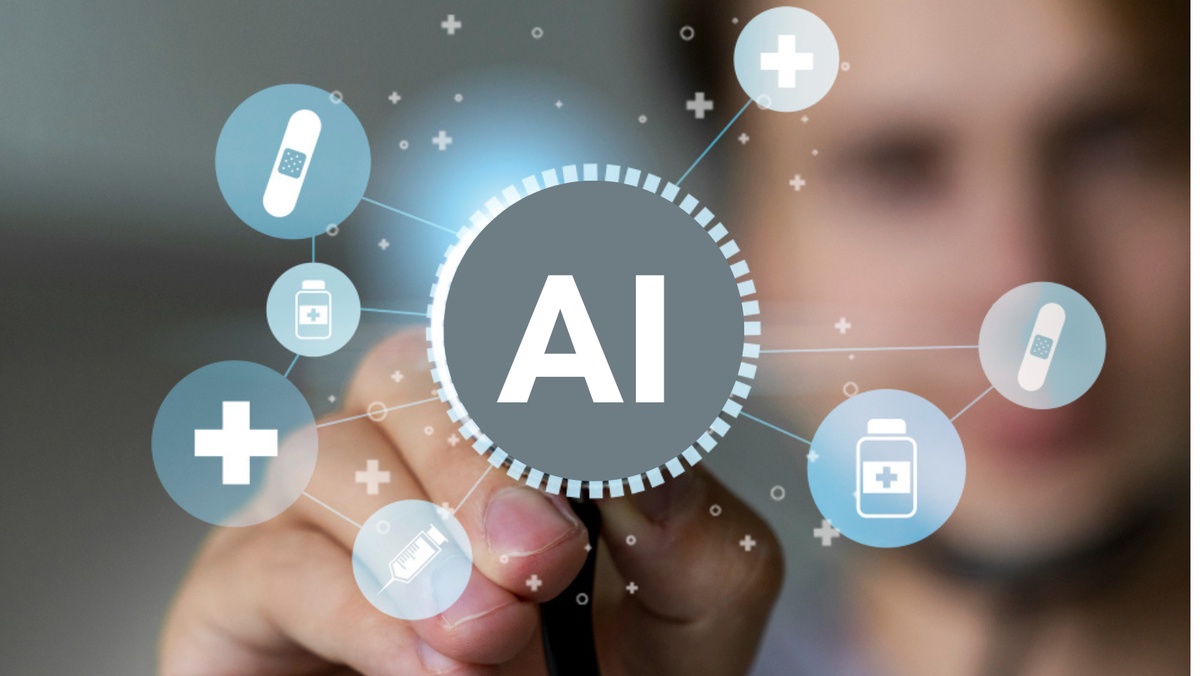In the era of the digital landscape, the healthcare industry is transforming like anything, and a big role is Artificial Intelligence (AI). It has been a transformative force, from caring for the patients to operations efficiency; this journey can be challenging if there is no interconnection between the healthcare ecosystem. To Successfully implement AI in healthcare, it is essential to have a comprehensive understanding of the unique challenges and to adopt best practices.
If we look at static reports, the role of AI in healthcare industry looks transformative. The reason for this evidence is by 2023, the ratio will reach $180 billion. If we conclude this, the growth in healthcare is for sure with Artificial intelligence. In this guide, we will drive you through the complexity, challenges, and best practices of Artificial intelligence in healthcare industry.
Bets Practise of AI in Healthcare
The successful integration of Artificial Intelligence in healthcare has the potential to revolutionize the entire sector. However, this can only be achieved by incorporating key best practices. In this transformative process, the role of AI developers is key. The strategy to hire AI developers is essential to enabling and driving this groundbreaking change.
Data Quality and Governance
The interface with high-quality and standardized data while establishing robust governance policies to maintain data integrity, security, and privacy. Clean, well-organized data is crucial for training accurate and unbiased AI models.
Interdisciplinary Collaboration
Collaborating among healthcare professionals, data scientists, and technology experts can be advantageous. This expertise will know-how ensure AI applications align with clinical needs and ethical standards.
User-Friendly Interfaces
It is essential to design user-friendly AI Interfaces that seamlessly integrate into existing workflows to enhance the workflow and not disrupt the work of healthcare professionals.
Security Measures
Implementing strong cybersecurity measures to protect AI systems against potential breaches is imperative. This can bring trust to the patients and the overall department. The security measures include encryption, access controls, and regular security audits to safeguard patient data and maintain system integrity.
Identify Real-time Problems and Set Clear Goals
Integrating Artificial intelligence in healthcare can be a prominent aspect of establishing a well-defined goal. It can identify real-time problems and provide solutions for them same. It can even entail analyzing data to unveil patterns guiding treatment decisions or deploying AI for automating select facets of patient care.
Challenges of AI in Healthcare Industry
The integration of Artificial Intelligence in healthcare brings about transformative potential, but it is not without its challenges. Below, you will see some critical hurdles facing the implementation of AI in the healthcare sector:
- Data Privacy and Security Concerns: Ensuring patient privacy and security while maintaining accessibility for AI algorithms is a delicate task due to its reliance on sensitive data.
- Ethical Dilemmas: AI algorithms must address ethical considerations like accountability, bias, and transparency in decision-making processes to maintain trust in healthcare systems.
- Regulatory Compliance: Adapting to evolving legal frameworks while adhering to strict regulations is a continuous challenge in healthcare AI implementation.
- Interoperability Issues: The healthcare industry often operates with a variety of disparate systems. Achieving seamless interoperability among different technologies and platforms poses a significant challenge for effectively integrating AI solutions.
- Data Quality and Bias: The quality and representativeness of data used to train AI models are key. However, biases in historical healthcare data may be perpetuated in AI algorithms, leading to diagnosis and treatment recommendation disparities.
The Promising Future of Healthcare by Implementing AI 2.0
The future of healthcare with AI looks bright at the movement, seeing the advanced algorithms and revolving features. Some of the inventions we will see in the future are:
- Enhanced advanced diagnostics and treatment
- Increased efficiency and accessibility
- Drug discovery and development
- Medical robotics and precision surgery
Therefore, the future of healthcare appears to be supported by the strategic implementation of Artificial Intelligence. It promises to revolutionize healthcare by improving efficiency, accessibility, and patient outcomes with its advanced algorithms. Moreover, predictive analytics and optimization of resources can be a more sustainable and cost-effective healthcare system.
In order to achieve a transformative future, it is important to partner with a reliable AI development company. These specialized firms have the expertise to design and implement custom AI solutions, ensuring seamless integration and optimal performance.


No comments yet